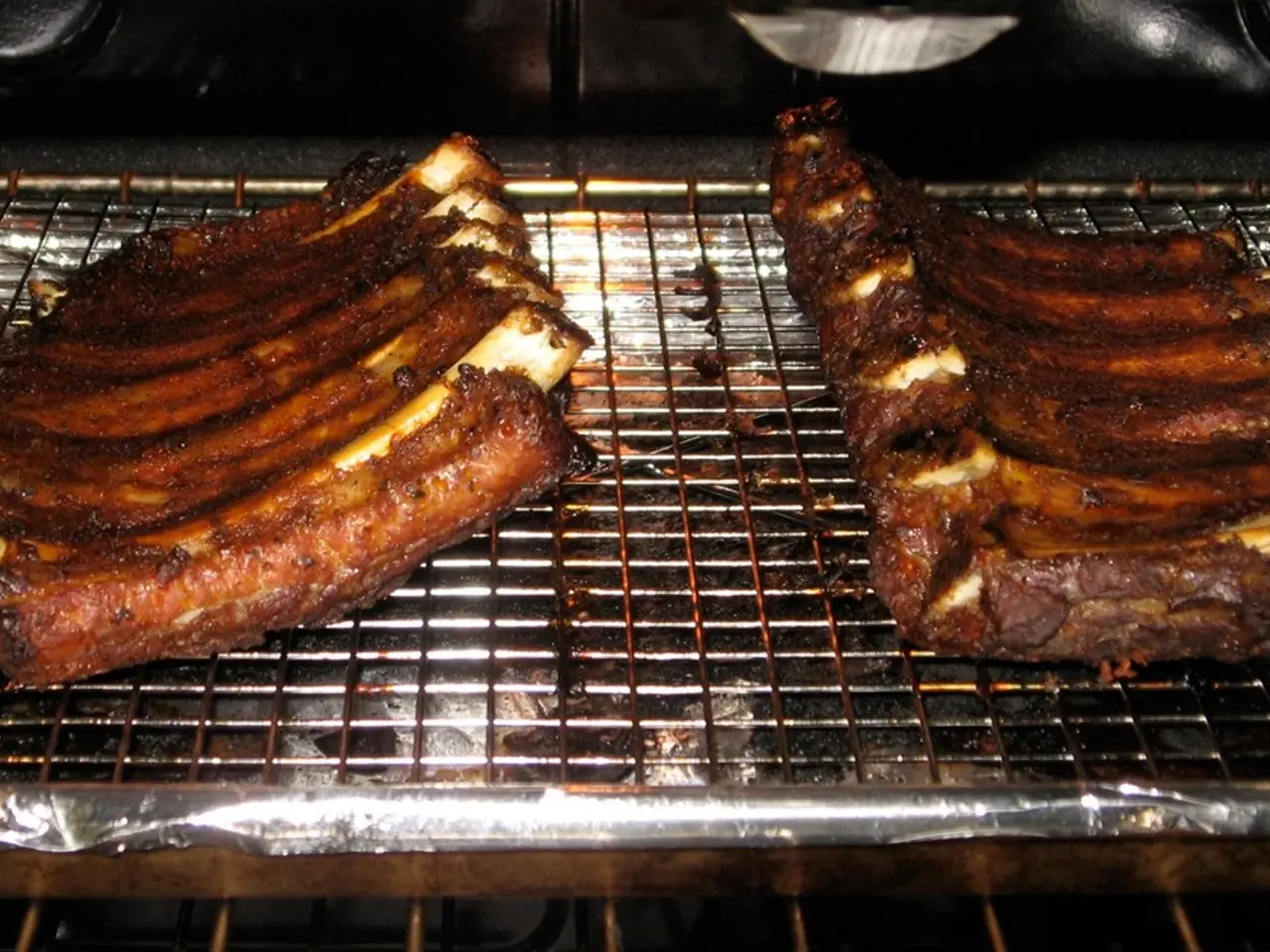Summer Grilling: Eco-Friendly Approach to Cooking Outdoors
Sustainable Grilling: A Guide to Eco-Friendly Barbecues
Grilling season is here, and it's time to consider the environmental impact of our barbecue habits. Here's a guide to help you grill sustainably, focusing on fuel choices, food selections, and eco-friendly practices.
Grill and Fuel Choices:
When it comes to grills, natural gas is a greener option compared to propane or charcoal, offering consistent heat with lower emissions and less smoky flavor. If you're using propane, opt for refillable or recyclable tanks to reduce waste from disposable ones. Electric grills, especially operated with green electricity, are a cleaner burning alternative, though they won't impart the smoky flavor. For charcoal enthusiasts, choose sustainably sourced lump charcoal over briquettes, but natural gas or propane still tend to have lower environmental impact. In commercial or larger setups, advanced gas timers can help control gas usage, reducing waste and emissions.
Food Choices:
Grill more vegetables or plant-based foods, which require less resource-intensive production than meat. Use BBQ vegetable baskets to efficiently grill small or delicate vegetables, and group vegetables by similar cooking times to optimize fuel use. Sourcing local and seasonal produce minimizes food miles and supports sustainable agriculture.
General Eco-Friendly Grilling Practices:
Preheat your grill properly for efficient cooking, and apply light coatings of oil strategically to prevent sticking. Avoid single-use plastics by employing reusable utensils, plates, and serving items. Manage leftover food and coals responsibly: fully extinguish charcoal and dispose or compost any food scraps properly.
When grilling in parks or meadows, do so only on permitted areas and avoid disturbing or driving away animals in the vicinity. Coal made from tropical wood can contribute to deforestation, so opt for natural materials like twigs, sticks, cardboard, wool, or cotton wool for grill lighters. DIN EN 1860-2 labeled coal does not contain pitch, oil, coke, or plastic. Using a reusable grill is more sustainable than a disposable one, and stainless steel grill pans are a more environmentally friendly alternative to aluminum ones.
In summary, sustainable grilling emphasizes choosing low-impact fuels like natural gas or electricity, focusing on plant-forward foods, efficiently using your grill and accessories, and minimizing waste through reusable tools and responsible disposal. By following these guidelines, you can enjoy your barbecue while also contributing to a greener planet.
- Embrace the smoky flavors of natural gas grills, or opt for an electric grill operated with green electricity, as both are more eco-friendly alternatives to propane or charcoal when it comes to barbecuing.
- To maximize sustainability while grilling, cook more plant-based foods like vegetables, and use them efficiently by grouping them according to similar cooking times and employing BBQ vegetable baskets.
- For an environmentally-friendly lifestyle during grilling, use reusable utensils, plates, serving items, and a reusable grill instead of disposable ones, and avoid single-use plastics whenever possible.




